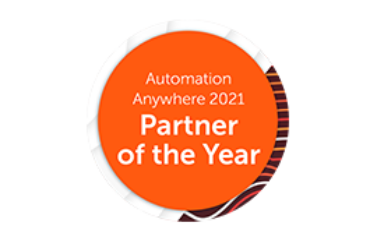Revolutionizing Government Operations: The Transformative Power of Microservices

By: Mohamed Moawad, Sales Manager, Business Development
In today’s rapidly evolving digital landscape, governments worldwide are seeking innovative ways to streamline their operations, enhance citizen services, and increase overall efficiency.
One technology that has gained significant attention for its potential to revolutionize government processes is microservices architecture. This article delves into the realm of microservices and explores how their implementation can lead to substantial improvements in various aspects of government operations.
What are Microservices?
Microservices architecture is a software development approach that breaks down complex applications into smaller, independent services. Each service, or microservice, is focused on a specific business function and can be developed and scaled independently. This modular approach offers numerous benefits, including improved agility, scalability, and maintainability.
What Are the Benefits of Using Microservices?
Enhanced Citizen Services: Microservices allow government agencies to develop and deploy digital services that cater to specific citizen needs. This means faster and more responsive applications, such as streamlined online application processes, real-time information updates, and personalized communication.
Agility in Development: Traditional monolithic systems often hinder rapid development and innovation. With microservices, government agencies can work on individual services independently. This agility facilitates faster rollout of new features and services, ultimately leading to better public services.
Scalability and Resource Efficiency: Microservices can scale independently based on demand, avoiding the need to scale an entire application. This approach prevents resource wastage and optimizes infrastructure costs, ensuring that resources are allocated where they’re most needed.
Interoperability and Integration: Governments often manage a myriad of systems and databases. Microservices can help bridge the gap between disparate systems by enabling seamless integration through well-defined APIs. This allows for data sharing and communication across departments, enhancing overall efficiency.
Resilience and Fault Isolation: In a microservices architecture, the failure of one service doesn’t necessarily lead to the failure of the entire application. This fault isolation ensures that critical government functions remain operational even in the face of technical glitches.
Security and Compliance: Microservices can enhance security by isolating sensitive data and functionality. This compartmentalization makes it easier to implement security measures and comply with data protection regulations.
Challenges and Considerations
While the benefits of microservices are significant, the transition from monolithic systems to a microservices architecture requires careful planning. Government agencies must address challenges such as managing complex communication between microservices, ensuring consistent data management and upskilling teams to work within this new paradigm.
Case Study: Digital Taxation System
A practical example of how microservices can enhance government operations is the implementation of a digital taxation system. By breaking down processes like tax filing, payment processing, and compliance checks into microservices, the government can create a seamless, user-centric experience while improving internal efficiency.
Conclusion
Microservices have the potential to transform how governments operate, delivering faster, more responsive, and citizen-focused services. While challenges exist, the benefits far outweigh the obstacles. As governments around the world continue to embrace digital transformation, the adoption of microservices could be the key to unlocking a new era of efficient, agile, and citizen-centric governance.
About the Author
Mohamed Moawad is the Sales Manager, Business Development at Technology Strategies Middle East (TSME). He offers 18 years of rich experience in international sales, business development, and leadership. Mr. Moawad cultivated over the years strong expertise with a demonstrated history of working in the computer hardware and software industry and in the field of innovation in IT and tech. He is a proficient sales professional and highly skilled in Management, Customer Service, Account Management, Sales, and Retail.



